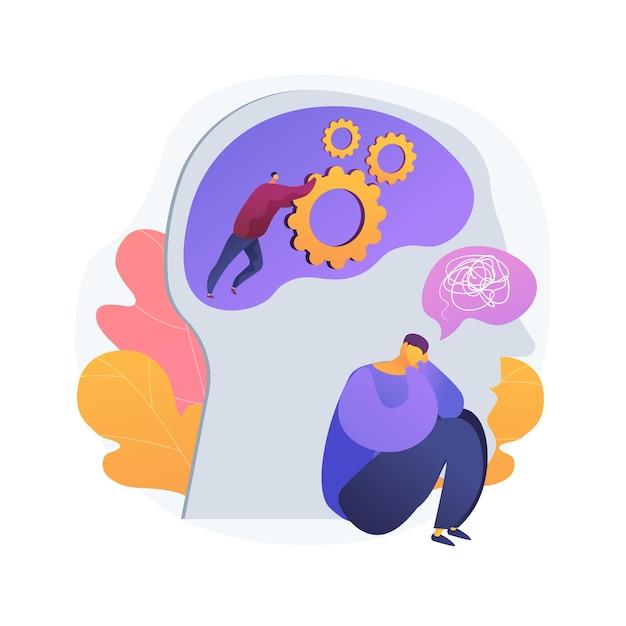Risk behaviour can have detrimental effects on various aspects of our lives, including our social interactions, financial stability, physical health, and emotional and mental well-being. In today’s fast-paced world, it is essential to understand the consequences of engaging in risky behaviours to make informed choices and lead healthier, happier lives.
This blog post will delve into the negative impacts of risk behaviour in social, economic, physical, emotional, and mental domains. We will explore how these behaviours can lead to increased stress levels, compromised social connections, financial difficulties, and deteriorating mental health. Understanding these negative effects can empower us to make better decisions and prioritize our overall well-being in a world filled with countless temptations and potential risks.
Join us as we explore the emotional symptoms of stress, the social implications of youth risk behaviour, and the holistic impact of risk behaviour on our social, economic, physical, emotional, and mental well-being. Let’s navigate through these challenges together and learn how to make more mindful choices that enhance our lives in the year 2023 and beyond.

What Are the Negative Impacts of Risk Behavior in Social, Economic, Physical, Emotional, and Mental Aspects?
Risk behavior can have detrimental effects on various aspects of our lives, including social, economic, physical, emotional, and mental well-being. Let’s take a closer look at each of these areas and understand the negative impacts of engaging in risky behaviors.
1. Social Consequences: Isolation and Stigmatization
Engaging in risky behaviors often leads to social consequences, such as isolation and stigmatization. When individuals continuously engage in risky activities, their behavior can alienate them from their social circles, leading to feelings of loneliness and disconnect. People may not want to associate with individuals who consistently put themselves and others in harm’s way, which can further perpetuate a sense of isolation.
2. Economic Fallout: Financial Instability
Risky behavior can have severe economic repercussions. For instance, individuals who consistently make impulsive and reckless financial decisions may find themselves facing financial instability. Engaging in risky investments, excessive gambling, or living beyond one’s means can quickly lead to mountains of debt and financial ruin. Such economic fallout can cause stress, strain relationships, and hinder one’s ability to secure a stable financial future.
3. Physical Health: Injuries and Health Complications
Engaging in risk-taking behavior can have direct negative effects on an individual’s physical health. Activities such as reckless driving, substance abuse, or participating in dangerous sports increase the likelihood of injuries. These injuries can range from minor cuts and bruises to life-threatening conditions that require long-term medical intervention. Additionally, certain risk behaviors like smoking or drug abuse can lead to serious health complications, including heart disease, respiratory issues, and even cancer.
4. Emotional Well-being: Anxiety and Depression
Risky behaviors can have a significant impact on one’s emotional well-being. Constantly living on the edge and disregarding consequences can lead to heightened levels of anxiety and stress. This perpetual state of worry and unpredictability can contribute to the development of anxiety disorders or exacerbate existing mental health conditions. Moreover, individuals who engage in risk behaviors may also experience feelings of guilt, shame, or regret, leading to a higher risk of developing depression.
5. Mental Health: Cognitive Impairment and Addiction
Engaging in risk behaviors can pose a threat to our mental health as well. Certain risky activities, such as substance abuse, can lead to cognitive impairments and affect our ability to think clearly or make rational decisions. Moreover, risky behaviors have a strong association with addiction. In fact, many individuals who engage in risky behaviors find themselves trapped in a cycle of addiction, which further deteriorates their mental well-being and overall quality of life.
In conclusion, engaging in risk behavior can have a profound negative impact on various aspects of our lives. From social isolation and economic instability to physical injuries, emotional distress, and mental health disorders, the consequences of risk-taking can be far-reaching. It is essential to recognize and understand these negative impacts to make informed decisions and prioritize our well-being. Remember, taking calculated risks is different from engaging in reckless behavior that can harm ourselves and those around us. Let’s strive for a balanced and healthy approach to life, embracing excitement while also considering the potential consequences.

FAQ: Negative Impacts of Risk Behavior on Social, Economic, Physical, Emotional, and Mental Well-being
Risk behavior can have far-reaching consequences on various aspects of our lives, including social, economic, physical, emotional, and mental well-being. In this FAQ-style section, we will explore some commonly asked questions related to the negative impacts of risk behavior in each of these areas. So, let’s dive in and find out more!
What are 3 Emotional Symptoms of Stress
Stress can manifest in various emotional symptoms. Here are three common ones:
Feeling Overwhelmed
When stress levels soar, it’s easy to become overwhelmed with emotions. You might feel like there’s just too much on your plate and struggle to cope with daily challenges.
Irritability and Mood Swings
Stress can turn even the most laid-back individuals into irritable beings. Have you noticed yourself snapping at others or experiencing sudden mood swings? It could be a red flag indicating stress.
Anxiety and Restlessness
Unhealthy risk behavior can amplify feelings of anxiety and restlessness. The constant worry and unease can make it difficult to concentrate, relax, or enjoy life to its fullest.
What is the Negative Impact of Youth Risk Behavior Socially
Youth risk behavior can significantly impact social interactions and relationships, which are crucial for personal growth and development.
Isolation and Alienation
Some risk behaviors can cause young individuals to withdraw from social activities and isolate themselves. This can lead to a sense of alienation from friends, family, and the larger community.
Strained Relationships
Youth engaged in risky behaviors may face strained relationships with their peers, parents, or siblings. Engaging in activities that disregard personal safety or disregard the well-being of others can create tension and conflict within these relationships.
Negative Influence on Peers
Youth risk behavior can have a domino effect on peers who may be influenced to engage in similar activities. This can perpetuate a cycle of unhealthy behavior and potentially impact a larger circle of individuals negatively.
What are the Emotional Symptoms
Risk behavior can take a toll on emotional well-being, leading to a range of negative emotional symptoms.
Depression and Sadness
Engaging in risky behavior can leave individuals feeling trapped in a cycle of negative emotions, resulting in feelings of sadness and even depression.
Low Self-esteem and Self-worth
Repeatedly engaging in risky behaviors can diminish a person’s sense of self-worth and lower their self-esteem. Negative consequences of risk behavior can reinforce feelings of inadequacy and guilt.
Guilt and Regret
After engaging in risk behavior, individuals often experience guilt and regret, which can be emotionally draining. These emotions can linger, affecting their overall emotional well-being.
What are the Negative Impacts of Risk Behavior on Social, Economic, Physical, Emotional, and Mental Well-being
Risk behavior, whether social, economic, physical, emotional, or mental, comes with its fair share of negative consequences. Let’s explore the effects in each area:
Social Impact
- Isolation and alienation from social groups
- Strained relationships and conflicts with friends, family, or peers
- Potential negative influence on others, perpetuating a cycle of risky behavior
Economic Impact
- Financial burdens due to legal consequences or healthcare expenses resulting from risk behavior
- Reduced career opportunities and potential loss of employment due to negative reputation or inability to meet responsibilities
Physical Impact
- Increased susceptibility to injuries or chronic health conditions resulting from risky activities
- Diminished overall health and well-being due to neglecting personal safety
Emotional Impact
- Elevated stress levels leading to emotional symptoms such as feeling overwhelmed and irritable
- Negative impact on emotional well-being, including anxiety, restlessness, depression, and low self-esteem
Mental Impact
- Risk behavior can have long-lasting effects on mental health, potentially leading to conditions like addiction and substance abuse disorders
- Impaired cognitive function, reduced ability to focus, and make sound decisions
Remember, risk behavior can have serious and lasting consequences on various aspects of your life. It’s essential to prioritize your well-being and make choices that promote a healthy and fulfilling lifestyle.
